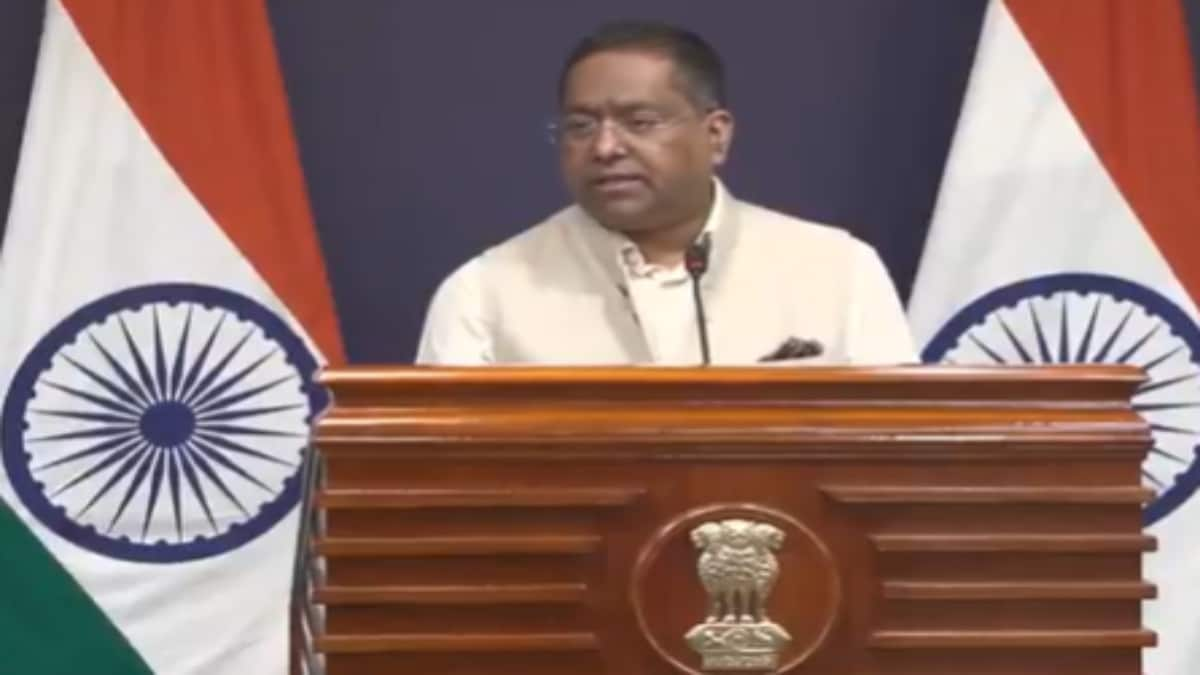

The Shanghai Cooperation Organisation (SCO) Defence Ministers' meeting concluded without a joint statement due to a lack of consensus on addressing terrorism, according to the Ministry of External Affairs (MEA). The meeting, which saw participation from member countries including India, Kazakhstan, China, Kyrgyzstan, Pakistan, Russia, Tajikistan, Uzbekistan, Iran and Belarus, failed to produce a unified declaration as certain nations could not agree on key issues, particularly concerning terrorism.
MEA Spokesperson Randhir Jaiswal stated that Defence Minister Rajnath Singh participated in the two-day SCO Defence Ministers' meeting. He noted that India had strongly advocated for the inclusion of concerns regarding terrorism in the joint statement. However, this proposal met with resistance from at least one member country, preventing the finalization and adoption of the document.
During his address at the SCO meeting in Qingdao, China, Defence Minister Rajnath Singh laid out India's position against terrorism, emphasizing the need for the SCO to unite in eliminating the menace for collective safety and security. He stated that the region's biggest challenges are related to peace, security, and trust deficits, with increasing radicalization, extremism, and terrorism being the root cause of these problems. He called upon member countries to unite in eliminating the menace for collective safety and security.
Singh asserted that those who sponsor, nurture, and utilize terrorism for their narrow and selfish ends must bear the consequences. He also criticized countries that use cross-border terrorism as an instrument of policy and provide shelter to terrorists. He urged the SCO to not hesitate to criticize such nations, stating that there should be no place for such double standards. He emphasized the need to hold the perpetrators, organizers, financiers, and sponsors of reprehensible acts of terrorism, including cross-border terrorism, accountable and bring them to justice.
The Defence Minister also drew attention to the evolving challenges of transnational terrorism, cyber threats, and hybrid warfare. He stressed the need to counter the advanced technologies being used by terrorists, including drones for cross-border smuggling of arms and narcotics.
Moreover, Rajnath Singh referenced the terror attack in Pahalgam, Jammu & Kashmir, and said that India launched Operation Sindoor in response to the attack, exercising its right to defend against terrorism and deter further cross-border attacks. He warned that epicenters of terrorism are no longer safe and India will not hesitate to target them.
While the specific country that objected to the inclusion of strong language on terrorism was not named, the Indian government's stance was clear: terrorism remains a critical regional challenge that must be addressed with a united front. Despite the lack of a joint statement, India has reaffirmed its commitment to engaging with all SCO members based on mutual respect, shared values, and a common commitment to fighting terrorism in all its forms.
The SCO, established in 2001, is a regional intergovernmental organization that promotes cooperation in areas such as security, trade, and culture. India became a full member in 2017 and assumed the rotating chairmanship in 2023. China has assumed the Chair of the SCO for 2025.